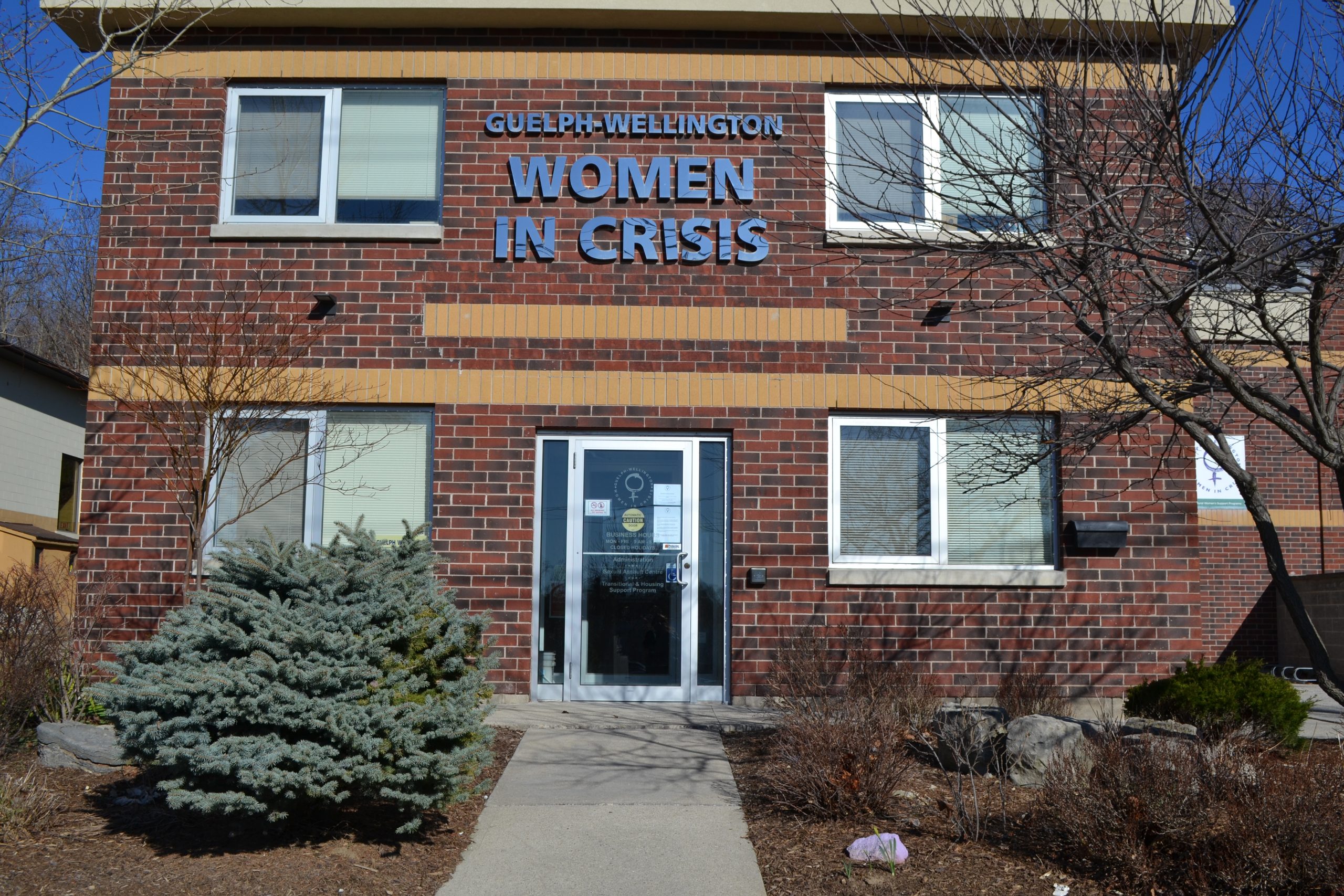WELLINGTON COUNTY – Guelph-Wellington Women in Crisis has continued to serve its clientele during the pandemic, but it’s been a rocky road, says the organization’s executive director.
“It’s been a tough 16 months,” Sly Castaldi said in an interview.
“The toughest 16 months of my career. We tried to make the best possible decisions but there was constant worry and stress.
“The pandemic has taken a toll on leadership in all sorts of community organizations.”
The biggest challenge when the pandemic began was at the emergency shelter, Marianne’s Place, which has been operating at 50 per cent capacity because of distancing and gathering restrictions.
“We utilized hotels for some clients – that created its own challenges too,” she said. “We just kept going as best as we could.”
There are 30 beds at the shelter. Families bunk together in private rooms and that continued through the pandemic.
But for singles it’s usually a shared bedroom and that was reduced to just one person per room.
Communal areas, like the kitchen and dining room, were closed. Staff brought prepared meals to clients, which changed up operations quite a bit.
Communal living, where people can easily get into conversations and develop bonds over shared experiences, can be positive and part of moving forward for women fleeing domestic violence. That, too, had to stop.
“It wasn’t the same experience in the shelter,” Castaldi said.
“Now we’ve opened the dining room. Every unit has its own table, but it’s still not like pre-pandemic.
“But vaccines are here, and guidelines are loosening. That’s making it better.”
Castaldi said the agency will never require clients to be vaccinated, but they strongly encourage it.
“That’s a decision they have to make for themselves. For us safety means masking and physical distancing. They (safety measures) will be with us for some time,” she said.
Three additional washrooms have also been added at the shelter allowing the organization to open three more beds.
“We are always at 100 per cent capacity and this past year there has been added pressure. We had tough decisions to make to prioritize clients,” she said.
“We never had to do that in the past.”
Castaldi said the shelter was built in 1993 when best practice was communal living – shared bedrooms and washrooms and communal cooking and living.
“That was the mindset,” she said. “We never imagined a pandemic.

SLY CASTALDI
“Going forward there are pandemic lessons for future builds,” she said, adding private rooms will likely become the new standard.
Outreach programs pivoted to virtual “and they helped women stay connected,” she said.
But there were no more drop-in programs, no more picking up clothes or household items.
Staff worked from home and met clients virtually. And there was an increase in calls to the crisis line.
“We understood and supported the stay-at-hone measures. You have to do your part,” Castaldi said.
“But that didn’t work for women trapped in abusive, violent relationships, or children living with abuse or addiction.”
Women in Crisis did give away about $20,000 worth of gift cards, so clients could still cover some basic needs.
Castaldi lauded Women in Crisis staff members, who were able to respond quickly to the changes brought on by the pandemic and the challenges of working from home.
“In the beginning, things were changing daily, and it was hard to hold on to all the moving pieces,” she said.
“I’m very grateful and proud of my staff. We did a pretty good job at keeping people safe and supported.”
And now? That remains a big question mark.
As it can, the shelter will take on more clients. When they’re able, counsellors will start holding group and one-on-one sessions in person again.
When it’s safe to do so, Women in Crisis will also hold its annual fundraisers. While some provincial and federal pandemic funding was allotted to the agency, it has missed the fundraising dollars.
At the outset of the pandemic, many people worried that families living with domestic violence were in greater peril during stay-at-home orders.
Castaldi said it’s hard to know if there will be a surge in clients along with the lifting of restrictions.
But whether things get better or worse in the world, there’s no need to remain in a dangerous domestic situation, she said.
“We’re here to help,” Castaldi said. “We’ve been here all along.”
Information about programs can be found a www.gwwomenincrisis.org. The 24-hour crisis line is 1-800-265-7233.




